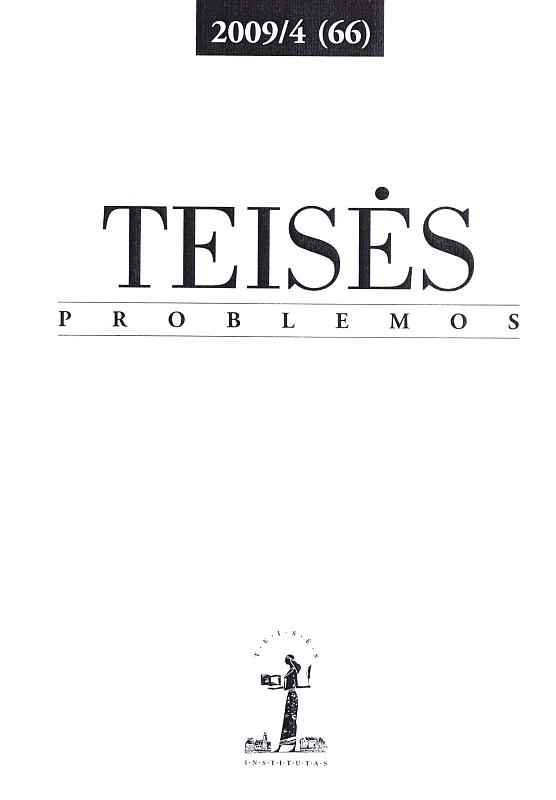Kriminologinio žinojimo konstravimas: valdžios vaidmuo
The Construction of Criminological Knowledge: Political Aspects
Author(s): Margarita DobryninaSubject(s): Criminology
Published by: Lietuvos teisės institutas
Summary/Abstract: The article discusses the problem of criminological knowledge, analyses the role of the politics and government constructing scientific discourse. Starting with the analysis of the power and knowledge interrelationship from the social constructionism theory perspective, the article further deals with the politics and control of criminological knowledge. Criminological knowledge is integral with the questions of social control and, accordingly, their political nature. The knowledge produced by criminologists is not neutral, but rather is constructed on the basis of power relations. Hence, it is important to deconstruct criminological discourse systematically, questioning the existing social reality of crime, the notion of social order and control. The article presents the fundamental ideas of critical criminology school concerning the influence of power and politics on the content and contours of criminological knowledge. It should be also noted that in order to better understand the state of criminological knowledge in certain state, it is vital to consider its past and present political, economical and social transformations. Herein, the article describes the peculiarities of the criminological knowledge in post-Soviet countries. Attention is also given to the problems of the construction of contemporary criminological knowledge in the context of two main criminological perspectives – administrative and critical criminology.
Journal: Teisės problemos
- Issue Year: 2009
- Issue No: 66 (4)
- Page Range: 109-125
- Page Count: 17
- Language: Lithuanian

